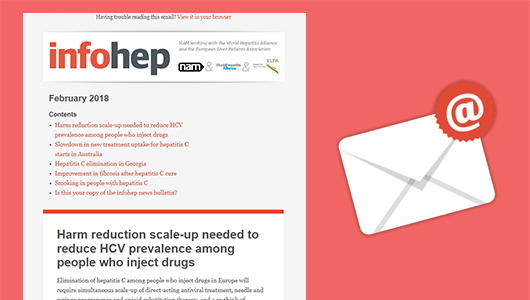Jarun Ontakrai/Shutterstock.com
London needs to step up the rate of testing for hepatitis C if it is to achieve elimination of hepatitis C, Professor Graham Foster of Queen Mary University London told the London Joint Working Group on Substance Use and Hepatitis C conference on hepatitis C elimination in London this week.
Although NHS England has exceeded its hepatitis C treatment target – "no other European country has achieved that", said Professor Foster – expanded testing is the key to elimination, he said.
"We need to find people who started using drugs 30 or 40 years ago and don’t know they have it and are in real trouble – we need to start doing general practitioner testing," he said. Professor Foster also endorsed greater promotion of online self-testing services as a way of reaching people with a history of injecting drug use.
London’s experience as it works towards elimination of hepatitis C may be relevant for other cities in several areas:
- Screening of migrants: 58% of people diagnosed with hepatitis C in west London were born abroad – but they come from 104 countries. Targeting screening efforts at people from specific countries may miss hepatitis C in many migrants.
- Peer outreach has been 'transformative' in engaging people who use drugs and homeless people in hepatitis C care, said Professor Foster. Peer outreach may require multiple contacts before people are ready to engage. Part of the work of peer outreach is to make hepatitis C a higher priority for clients. This takes time, said Rob Allan of the Hepatitis C Trust.
- Micro-elimination of hepatitis C in prison populations requires co-operation between prison health services, prison staff, peer support groups and health services outside prisons. NHS England aims to test and treat the populations in 30 prisons over the next year. At least eight prisons in England have already achieved elimination and are screening and treating all new inmates, Mark Gillyon-Powell of NHS England reported.




Connect with infohep on Facebook: Keep up to date with all the latest news and developments.
Follow infohep on Twitter for links to news stories and updates from infohep.org. Follow us at www.twitter.com/infohep.
Follow all the infohep news by subscribing to our RSS feeds.